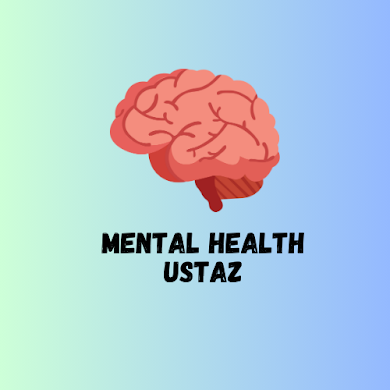# Outline of the Article
1. Introduction
2. Understanding Anxiety Disorders
3. Types of Anxiety Disorders
a. Generalized Anxiety Disorder (GAD)
b. Social Anxiety Disorder (SAD)
c. Panic Disorder
d. Specific Phobias
e. Obsessive-Compulsive Disorder (OCD)
f. Post-Traumatic Stress Disorder (PTSD)
four. Biological Causes of Anxiety Disorders
a. Genetic Factors
b. Brain Chemistry
five. Environmental Causes of Anxiety Disorders
a. Childhood Trauma
b. Chronic Stress
c. Substance Abused. Health Conditions
6. Psychological Causes of Anxiety Disorders
a. Personality Factors
b. Coping Strategies
7. The Interplay of Biological, Environmental, and Psychological Factors
8. Early Warning Signs
9. Effects of Anxiety Disorders
10. Diagnosis and Treatment
11. Lifestyle Changes for Managing Anxiety
12. Conclusion
13. Frequently Asked Questions (FAQs)
**What are the Causes of Anxiety Disorders?**
What are the causes of hysteria problems? Anxiety issues are conventional mental health conditions that affect millions of human beings internationally. While they occur in numerous forms and intensities, they proportion commonplace capabilities together with immoderate fear, worry, and anxiety. Understanding the causes of anxiety issues is important in managing and treating them correctly. In this article, we can explore the tricky web of factors contributing to those problems and shed mild on the perplexity in their origins.
What are the reasons for tension issues?
Introduction: Anxiety disorders are a set of intellectual health situations characterized by excessive and often irrational worry, fear, or dread. They can appreciably impact a person's everyday existence, relationships, and well-being. Understanding the causes of tension disorders is essential for each individual experiencing anxiety and those in search of to guide them.
Understanding Anxiety Disorders
Before delving into the causes, briefly observe what tension disorders are. These situations encompass several disorders, each with its unique traits. The maximum common kinds encompass:
Types of Anxiety Disorders
1. **Generalized Anxiety Disorder (GAD)**: Persistent and immoderate worry about numerous components of life.
2. **Social Anxiety Disorder (SAD)**: Fear of social situations and scrutiny from others.
Three. **Panic Disorder**: Recurrent panic attacks with intense physical and emotional signs.
4. **Specific Phobias**: Overwhelming fear of particular objects or conditions.
Five. **Obsessive-Compulsive Disorder (OCD)**: Intrusive mind and compulsive behaviors.
6. **Post-Traumatic Stress Disorder (PTSD)**: Resulting from exposure to stressful activities.
Biological Causes of Anxiety Disorders
Anxiety disorders have a complex interplay of causes. Biological elements play a sizable function, along with:
Genetic Factors
Research suggests a genetic predisposition to tension problems. If a close family member has experienced these situations, you may be in greater danger.
Brain Chemistry
Imbalances in neurotransmitters, the brain's chemical messengers, can contribute to tension disorders. Alterations in serotonin, dopamine, and norepinephrine levels are regularly connected to these situations.
Environmental Causes of Anxiety Disorders
Environmental elements also can contribute to the improvement of hysteria disorders, which include:
Childhood Trauma
Experiencing trauma for the duration of childhood, including abuse or forgetting, can increase the threat of growing anxiety problems later in existence.
Chronic Stress
Sustained exposure to pressure in day-by-day life can result in the onset of tension disorders. High-stress environments or lifestyle occasions can trigger those situations.
Substance Abuse
Substance abuse, inclusive of alcohol and drugs, can exacerbate or cause anxiety problems.
Health Conditions
Certain scientific situations, such as thyroid troubles and coronary heart illnesses, can happen as tension disorders.
Psychological Causes of Anxiety Disorders
Psychological elements play a vital function in anxiety improvement, together with:
Personality Factors
Individuals with unique personality traits, like perfectionism or pessimism, are greater vulnerable to anxiety issues.
Coping Strategies
Ineffective coping mechanisms or an incapability to manipulate pressure can contribute to the improvement of hysteria.
The Interplay of Biological, Environmental, and Psychological Factors
It's vital to notice that tension issues frequently end result from the tricky interplay of those organic, environmental, and mental elements. A combination of those factors may additionally cause or exacerbate those situations.
Early Warning Signs
Recognizing early warning signs and symptoms is important for early intervention and remedy. These signs and symptoms may additionally include immoderate fear, restlessness, and physical signs and symptoms like accelerated coronary heart rate and sweating.
Effects of Anxiety Disorders
Anxiety problems can have profound consequences on a person's existence, together with impaired painting or school overall performance, strained relationships, and reduced universal high-quality lifestyles.
Diagnosis and Treatment
Proper prognosis and treatment are crucial for coping with tension problems. Treatment options might also encompass therapy, medicinal drugs, or a combination of both. Seeking expert assistance is endorsed.
Lifestyle Changes for Managing Anxiety
In addition to scientific remedies, lifestyle adjustments may be relatively effective in dealing with tension. These include workouts, rest strategies, and a wholesome food plan.
Conclusion
Anxiety disorders have multifaceted reasons, involving genetic, environmental, and psychological elements. Recognizing the complexity of those conditions is critical in providing proper guidance and treatment.
Frequently Asked Questions (FAQs)
1. Can tension disorders be cured absolutely?
No, anxiety problems can not be cured completely, however, they can be effectively controlled with the right treatment and lifestyle modifications.
2. Are anxiety disorders completely as a result of genetics?
While genetics can play a role, anxiety disorders generally result from a combination of genetic, environmental, and psychological factors.
3. Can lifestyle changes alone treat anxiety problems?
Lifestyle changes, consisting of exercising and strain control, can help manage anxiety, but they may be regularly best while mixed with therapy and medication.
4. Is it commonplace for children to experience anxiety problems?
Yes, anxiety issues can have an effect on kids, and early intervention is crucial for his or her well-being.
5. How can I guide a person with an anxiety disorder?
Supporting a person with a tension disease involves presenting empathy, and knowledge, and inspiring them to look for professional help.
For more information visit here (https://www.psychiatry.org/patients-families/anxiety-disorders/what-are-anxiety-disorders#:~:text=The%20causes%20of%20anxiety%20disorders,stresses%20can%20produce%20the%20disorders.)




0 Comments